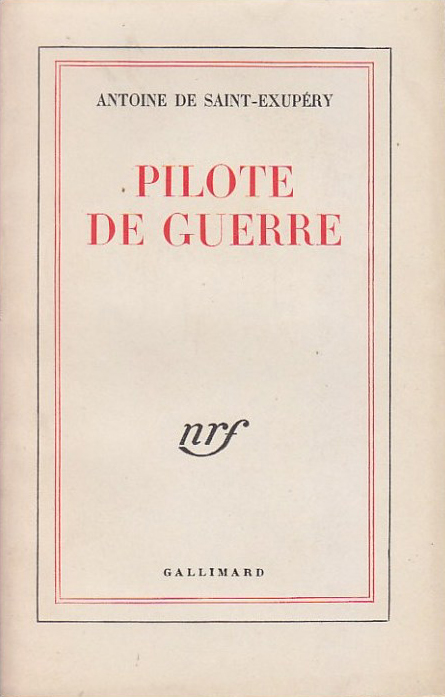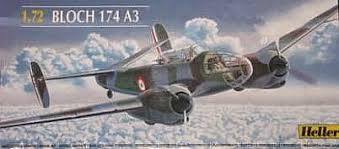‘Pilote de guerre’ (1942), translated as ’Flight to Arras’ (1942) by Antoine de Saint Exupéry
Good Reads meta-data is 168 pages, rated 3.9 by 1852 litizens.
Genre: Non-Fiction

Verdict: ‘Like glasses of water thrown onto a raging forrest fire,’ that is St X’s description of the futile and pointless actions of his Reconnaissance Group II/33 in May and June 1940 when half of the planes (seventeen in all) and crew (more than fifty men) were sacrificed in meaningless and often fatal efforts to stem the blaze that erupted from the impassable Ardenne.
Somehow St X and the other half of Group II/33 survived. He flew at least six combat missions at five hundred feet, well within range of small arms fire, to say nothing of anti-aircraft cannons. There is a remarkable description of a plane surrounded by a basilica of light with yellow candle flames rising to meet it. It is, of course, caught in search lights and the tracers of gunfire assail it.
 He flew a Bloch 174. The navigator, photographer sat in the glass nose cone, while the pilot and the rear-facing gunner sat in the upper glass bubble.
He flew a Bloch 174. The navigator, photographer sat in the glass nose cone, while the pilot and the rear-facing gunner sat in the upper glass bubble.
The book is replete with his descriptions of flight, musings on life, and observations on death which he found a constant companion. He also emphasis the dutiful way in which members of his Group II/33 went about the business with neither histrionics, panegyrics, excuses, or delays. When it was one’s turn to fly, one flew, no matter how suicidal it seemed and sometimes was. St X took his turn and his chances along with the the others. It compares in the desiccated tone to Marc Bloch’s ‘Strange Defeat’ (1944).
As he sits in the cockpit warming the engines, he muses on his childhood bicycle rides through oak forests which he likens to clouds. As always his prose is elegant and elegiac. Then comes the harrowing moment in flight when the rudder will not respond and the tricks to free it do not work as the Messerschmitt 109s approach. Then at the last minute the Germans diverted to a better target.
That straight forward account of courage and grace under withering fire found a ready audience, and though the book was banned in Vichy France and worse in Occupied France, clandestine copies circulated widely. It was banned not because it portrayed the war against the Occupier so much as because in it St X praised a Jew who led by example, noted the thanked the dedicated communists in the ground crew who overcame impossible problems, and complained about the generals who orchestrated the chaos from a safe distance many of whom later found a billet with Vichy.
He wrote it, while in the States to explain, to justify the French after the Defeat by showing that many Frenchmen did their best in an impossible situation, leaving almost 100,000 of them dead. (Leaving aside of course the fact that the impossible situation had been made by a good many Frenchmen over several years, a lot more than just a few generals brewed the soup, and that St X himself never had any interest in the broader society until it impinged on him in Group II/33.
St X rejoined II/33 in Corsica in 1944 from when he flew into legend, perhaps landing on Asteroid 325 also known as Asteroid B-612.
Skip to content
